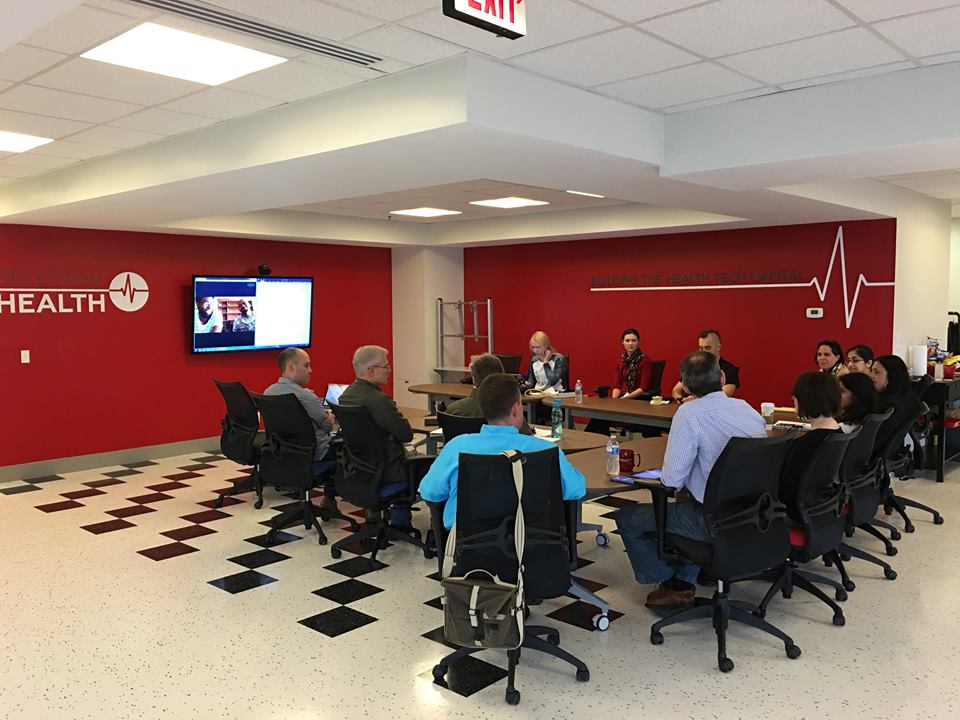BioHealth Innovation inked a pair of recent deals to run incubators in Montgomery County.
The Rockville-based organization that works to help health and life sciences startups in the region is set to manage the Germantown Innovation Center and the Rockville Innovation Center. It’s the first foray into running incubators for the public-private partnership, which also helps startups coming out of UMB and Johns Hopkins in Baltimore.
BHI provides resources for startups including entrepreneurs-in-residence and connections to the area’s larger biotech companies. CEO Richard Bendis said the Montgomery County incubators are in a “sweet spot” of the companies they want to help. Between the two incubators, Bendis said there are 48 startups.
“It enables us to provide a physical space to some of the companies we want to work with or provide value-added service to the companies inside these innovation centers,” he said.
BHI is bringing on two employees to assist in the management, and is also partnering with organizations on both incubators.
In Germantown, the incubator includes wet lab facilities and the companies are largely focused around biohealth. The incubator is located at Montgomery College’s science and technology center, and BHI will partner with the college for outreach.
The organization’s work in Rockville extends from the Relevant Health accelerator, a five-month program BHI ran at the incubator earlier this year.
“It was just a natural extension of some of the things we were doing,” Bendis said.
BHI will manage the incubator. Not all of the companies in that space are in biohealth, however, so they will is working with a partner to provide additional help for startups. Under the deal, technologists from the Mitre Corporation will also provide expertise on cybersecurity. Mitre, which is based in Mclean, Va., works in Maryland as operator of the National Cybersecurity Federally Funded Research and Development Center.
Bendis said the two incubators are in one center of the region’s biotech activity, with big biotech and pharmaceutical companies, research institutions such as NIH and the regulatory agency where many of the companies need to seek approval in the FDA. Creating new companies can add to the “clustering” effect that’s already apparent, adding to work to help the region close the much-talked-about gap between research and startups that are created out of that work.
Before you go...
Please consider supporting Technical.ly to keep our independent journalism strong. Unlike most business-focused media outlets, we don’t have a paywall. Instead, we count on your personal and organizational support.
Join our growing Slack community
Join 5,000 tech professionals and entrepreneurs in our community Slack today!

The person charged in the UnitedHealthcare CEO shooting had a ton of tech connections

From rejection to innovation: How I built a tool to beat AI hiring algorithms at their own game

Where are the country’s most vibrant tech and startup communities?


